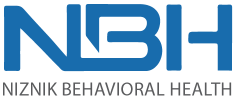Alzheimer’s and Substance Abuse: Alzheimer’s and Brain Awareness Month
This June marks both Alzheimer’s and Brain Awareness Month. As you grow older, the higher your risk becomes for developing dementia, a medical syndrome that hinders the brain’s ability to use cognitive function. The most common form of dementia is Alzheimer’s disease. It’s estimated that 10% of all Americans age 65 and older will develop Alzheimer’s, about 5.6 million people.
What are the Signs of Alzheimer’s?
Early signs of Alzheimer’s include:
- Losing track of time and dates
- Difficulty completing familiar tasks
- Trouble keeping up with conversations
- Forgetting very recent events
- Misplacing things
- Deteriorating problem-solving skills
Alzheimer’s or any other form of dementia cannot be cured. The slow progression of tissue loss and dying brain cells will continue to affect the individual for the rest of their lives. The only way it can be managed is with certain medications, such as cholinesterase inhibitors, that will improve brain function.
Does Alcohol Abuse Increase Your Risk of Dementia?
A recent study has found a direct link between alcohol and Alzheimer’s disease. Alcohol interferes with the body’s natural ability to eliminate amyloid plaques, fragments of protein that build up in the brain and directly affect nerve cell transmission and memory function. These plaques are one of the biggest indicators of developing Alzheimer’s. Additionally, any excessive exposure to drugs and alcohol greatly increases your risk of developing dementia.
What Can You Do For Your Brain?
Poor brain health leads to conditions that cannot be reversed, so it’s best to take care of your brain while you still can. Prolonged substance abuse can cause devastating long term damage to your brain, but the good news is that this damage can be mitigated at least in part by seeking proper treatment and therapy.
Your mind is an amazing machine that can hold itself together even after years of being exposed to harmful substances. Recovery may be daunting, but you and your brain are worth fighting for. For more information or a free consultation, contact us today.

